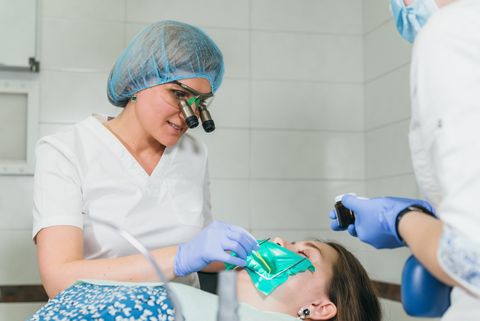After the Extraction Process
After the extraction procedure has been completed, you will form a blood clot to stop the bleeding by biting down on gauze for approximately an hour or however long necessary to stop the bleeding.
After the bleeding stops, it is important to not disrupt the blood clot. Avoid rinsing, sucking on straws, drinking alcohol, smoking, or brushing teeth around the extracted tooth for up to 3 days. Avoid any exercise for the next 24-48 hours.
After the procedure, pain and swelling is expected. Use an ice pack to keep the swelling to a minimum. Swelling will usually subside after 2-3 days. Take pain medication as prescribed by Dr. Clark. If swelling and pain continues, contact our office immediately.
Begin routine dental hygiene 24 hours after the procedure including brushing and flossing at least once a day. This can help the healing process while keeping your mouth healthy.
Drink plenty of fluids and eat soft foods on the day of the extraction. You can resume normal eating as soon as your comfort level allows.
If you're still experiencing bleeding, continued swelling, or severe pain after the 72 hour period, contact us immediately.




